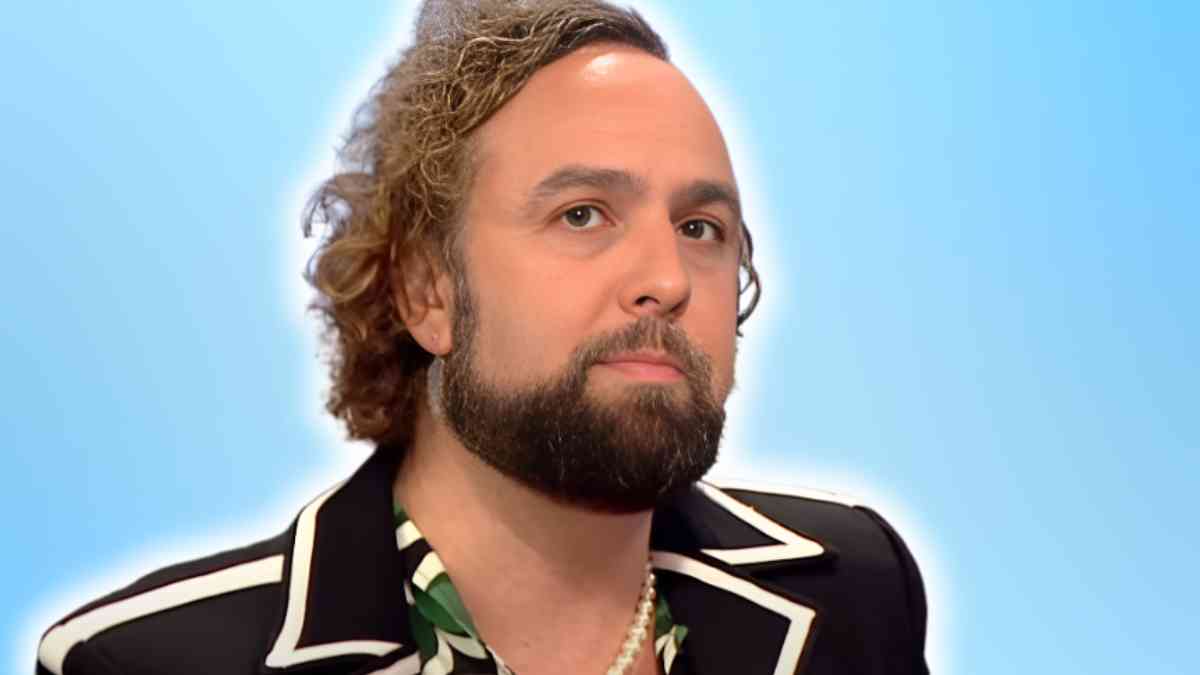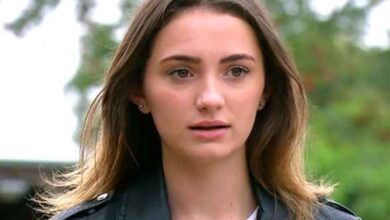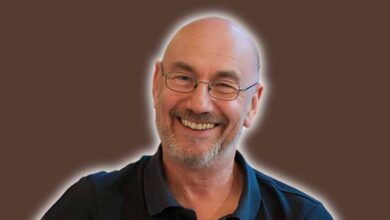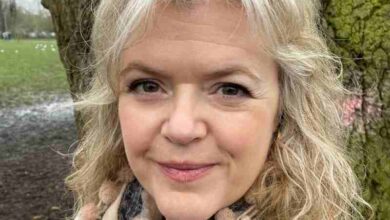Daf James: The Welsh Visionary Transforming Queer Storytelling Across Stage and Screen

Few contemporary writers manage to bridge language, medium, and identity with the fearless energy of Daf James. A bilingual playwright, screenwriter, composer, and performer, James has spent the past two decades reshaping how Welsh stories—and queer stories—are told. From late-night fringe cabarets to prime-time BBC drama, his work marries raucous humour with searing honesty, sparking national conversations about family, language, and belonging.
Early Life and Education
Born and raised in Cowbridge, Vale of Glamorgan, James grew up surrounded by both the lyrical cadences of Welsh and the popular culture of anglophone Britain. He read English Literature at the University of Edinburgh, graduating with first-class honours in 2001, then trained at London’s International School of Performing Arts, steeped in the physical-theatre methods of Jacques Lecoq. A doctorate in Theatre Studies at Warwick followed, where his 2011 thesis explored the “profound politics of performance” through a queer lens—an academic foundation that still underpins his creative practice today.
Finding a Voice: Cabaret, Comedy, and “Sue”
James’s first brush with national attention came in 2008 with My Name Is Sue, a lo-fi cabaret co-devised with Ben Lewis. Performing in drag as Sue—a cardigan-clad piano diva channelling equal parts Victoria Wood and Hedwig—James blended satire and torch-song melodrama, winning the Total Theatre Award at the 2009 Edinburgh Fringe. The show’s mischievous combination of music, queerness, and unabashed vulnerability announced a creator unafraid to be defiantly himself onstage.
Breaking New Ground with Llwyth (Tribe)
If “Sue” was a calling card, Llwyth (2010) was a thunderclap. Written in Welsh and set over one riotous Cardiff night, the play tracks four gay friends navigating identity, desire, and national pride. Critics hailed it as a watershed moment that “changed the landscape of Welsh-language theatre forever,” praising its poetic vernacular and unapologetic queerness. Guardian reviewer Gareth Llŷr Evans later noted that the piece “announced James as a major new voice and pioneered a bold new Welsh-language theatrical vernacular.”
From Llwyth to Tylwyth—A Decade-Long Conversation
Ten years later, James revisited his quartet in Tylwyth (Kin), exploring fatherhood, chemsex, and the passage of time. The follow-up toured Wales in 2022 and reaffirmed his status as “one of Wales’s most exciting playwrights,” offering audiences a rare chance to see queer lives evolve in real time on a national stage. Reviewers lauded its lyricism and emotional heft, noting how it balanced crowd-pleasing humour with frank discussions of mental health and addiction.
Expanding Horizons: Opera, Musicals, and International Stages
James’s appetite for cross-genre experimentation has taken him far beyond traditional theatre. He co-wrote the Roald Dahl celebration Wonderman in 2016, composed songs for City of the Unexpected—an outdoor spectacular attended by over 120,000 spectators—and scored the Cape Town/Wales Millennium Centre musical Tiger Bay in 2017. His adoption drama On the Other Hand, We’re Happy toured Paines Plough’s Roundabout, then won Best Production at the LA Drama Critics Circle Awards after its 2022 U.S. premiere. Each project affirmed James’s knack for fusing music and narrative to create experiences that feel both epic and intimate.
Voices on the Airwaves
Radio has been another fertile playground. Short-form family comedy Driving Home for Christmas (2012) showcased his collaborative spirit, while My Mother Taught Me How to Sing (2017) wove memoir and song into a poignant meditation on grief and parenthood. Follow-up docudrama Graveyards in My Closet (2020) tackled buried family secrets with disarming candour. These productions, often anchored by James’s own voice, reveal a writer comfortable using the microphone as confession booth and megaphone alike.
Small-Screen Breakthrough: Lost Boys & Fairies
James’s leap to television has been triumphant. Developed through the BBC Writers’ Room and produced with Duck Soup Films, Lost Boys & Fairies premiered on BBC One and iPlayer in June 2024. The three-part drama follows Gabriel—a bilingual drag performer in Cardiff—and his partner Andy as they navigate the UK’s exacting adoption process. Though fictionalised, the narrative draws deeply on James’s own experience adopting three children with his husband, lending the series raw authenticity.
Critics praised the show for its tender depiction of queer domesticity, its musical set-pieces, and its unapologetic use of Welsh on prime-time TV. James himself stressed that “family isn’t just your birth family; it’s the community that loves you,” framing the series as both personal testimony and universal love story.
Themes and Creative Signature
Across media, several hallmarks define James’s work:
-
Queer Lenses on Familiar Landscapes – Whether roaming Cardiff’s clubs or child-services offices, he centres LGBTQ+ perspectives without apology.
-
Bilingual Storytelling – James toggles between Welsh and English to mirror modern Wales, challenging linguistic hierarchies while broadening audience horizons.
-
Music as Emotional Engine – From cabaret numbers to TV drag anthems, song functions as narrative accelerant and catharsis.
-
Radical Empathy – Characters grapple with grief, shame, addiction, and joy, but James refuses pity; he offers complexity and hope.
These traits make his output instantly recognisable—and increasingly influential among emerging Welsh writers seeking to tell intersectional stories on their own terms.
Awards and Industry Recognition
James’s mantelpiece is now crowded. Alongside early accolades (Total Theatre Award; Theatre Critics Wales Award), he entered a new league in November 2024, when BAFTA named him a Breakthrough UK talent for his multifaceted role on Lost Boys & Fairies. The honour places him among the most promising voices in British film, TV, and games, providing bespoke industry support to accelerate his career.
Advocate, Academic, and Community Catalyst
Beyond scripts, James lectures, mentors, and speaks at events such as the Iris Prize festival’s “Script to Screen” workshops, championing queer representation and Welsh-language arts. Colleagues note his generosity in nurturing younger creatives, while audiences—especially in rural Wales—value his insistence that complex, multilingual narratives belong on main stages and mainstream channels.
Personal Life and Influence
James lives in Cardiff with his husband and their three adopted children. He often jokes that bedtime stories in their house are rehearsals for future scripts, yet interviews reveal a deeper purpose: modelling a visible, thriving queer family in a nation still reckoning with the aftershocks of Section 28. By weaving personal history into public art, he widens the cultural lens through which families like his are seen.
Looking Ahead
What’s next? Industry chatter points to a feature-film adaptation of Llwyth, a new bilingual musical commissioned by National Theatre Wales, and further television projects exploring neurodiversity—a subject James speaks about openly as a “thriving autistic” artist. While details remain under wraps, BAFTA support and the momentum of Lost Boys & Fairies suggest that his next leap could be global.
Conclusion
Daf James has achieved something remarkably rare: he has shifted the centre of gravity in both Welsh and UK storytelling. By insisting that queer, bilingual, working-class, and neurodivergent voices belong on the largest stages and screens, he has expanded the cultural mainstream itself. As audiences hum his songs, binge his dramas, and recognise glimpses of their own messy, glorious lives in his characters, one truth rings clear—James isn’t merely reflecting Wales; he is redefining it for the twenty-first century. That singular vision, equal parts fire and generosity, will keep him at the forefront of British arts for years to come.



